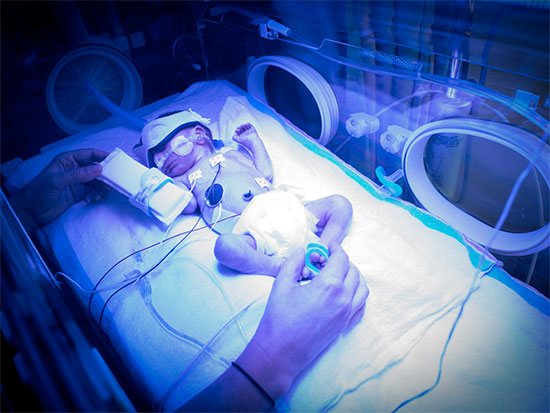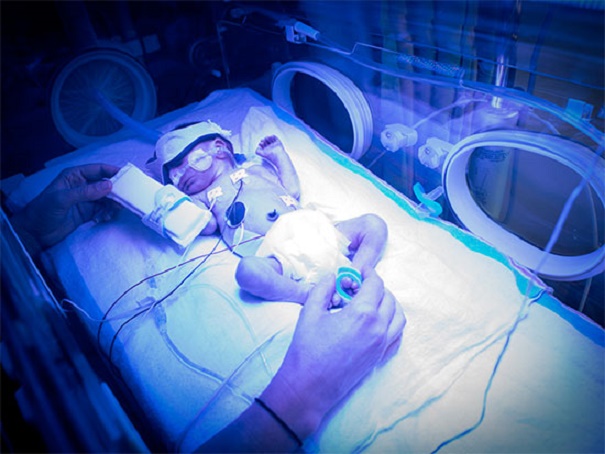By Alicia Rohan
UAB News

The University of Alabama at Birmingham Women and Infants Services has established the UAB Comprehensive Program for Addiction in Pregnancy with a $221,770 grant from the UAB Health Services Foundation General Endowment Fund.
“Pregnant women and their infants are victims of the opioid epidemic that has been labeled a public health crisis in the United States,” said Lorie Harper, M.D., associate professor in the UAB Division of Maternal-Fetal Medicine. “Women with substance use disorders during pregnancy face substantial barriers to care. The Comprehensive Program for Addiction in Pregnancy will provide coordinated, multidisciplinary care to women suffering substance use disorders during pregnancy and postpartum.”
Barriers to care for women with substance use disorders during pregnancy include social stigma, legal consequences, transportation, poor communications between providers and limited facilities for addiction treatment programs. As part of the UAB Addiction Scholars Program, the integration of prenatal services with the Addiction Recovery Program will increase access to care for women with substance use disorders during pregnancy by offering prenatal care at the clinic and will help these patients mitigate the legal penalties of substance use disorders. The program will impact health care costs significantly by decreasing the lengths of hospital stays for women and their newborns.
Through the program, patients will have access to routine prenatal care, as well as treatment programs, including opioid replacement therapy. Patients will receive help in navigating government systems that can enhance their care, such as Medicaid; Women, Infants and Children food and nutrition service; Alabama Department of Human Resources; and Family Wellness Program. A social worker will be on hand to help patients coordinate postpartum care and provide assistance for Neonatal Abstinence Inpatient Services.
The antenatal care offered through the program will flow seamlessly into postnatal care, decreasing unintended pregnancies and increasing adequate newborn care in this high-risk population. Subspecialty pediatric care will assist mothers in managing routine pediatric visits and provide neurodevelopmental follow-up in these high-risk infants.
“The UAB Division of Neonatology and the Department of Pediatrics are committed to the best outcomes for babies with neonatal abstinence syndrome,” said Brian Sims, M.D., Ph.D., associate professor in the UAB Division of Neonatology. “The Comprehensive Program for Addiction in Pregnancy is very timely and allows us to follow these high-risk infants and assess their neurodevelopment. This is a groundbreaking step in the battle against opiate addiction and will help us have better information on the growth and development of these infants.”
Prenatal care groups will meet weekly to discuss aspects of prenatal health, what to expect during labor and delivery, infant care, and breastfeeding, while providing information unique to women with substance use disorders, such as neonatal abstinence syndrome and pain management after delivery. After delivery, the women will transition into a parenting care group that focuses on routine postpartum care, breastfeeding and contraception, as well as psychosocial support for the stresses of parenting to help prevent relapse during this high-risk time.
“Addiction is a multifaceted family disease that impacts physical, psychological and emotional health and social functioning,” said Cayce Paddock, M.D., assistant professor in the UAB Department of Psychiatry. “If we concentrate only on the medical care of the individual using the substances, we miss the opportunity to impact so many areas of her healing. The comprehensive care program is an integrated care model that will allow us to broaden our scope of intervention from focusing on the physical health of individuals with the substance use disorder to the overall well-being of all the individuals impacted by the disease.”
During the first year, clinicians will establish a universal screening for substance use disorders in pregnancy at UAB and create a referral program for women reporting or at high risk of substance use disorders during pregnancy.
“In addition to caring for the women with use disorders during pregnancy, we will use the program as an educational tool for other providers throughout Alabama,” Harper said. “It is important that obstetricians screen all pregnant women for substance use disorders and utilize an integrated approach to care.”




